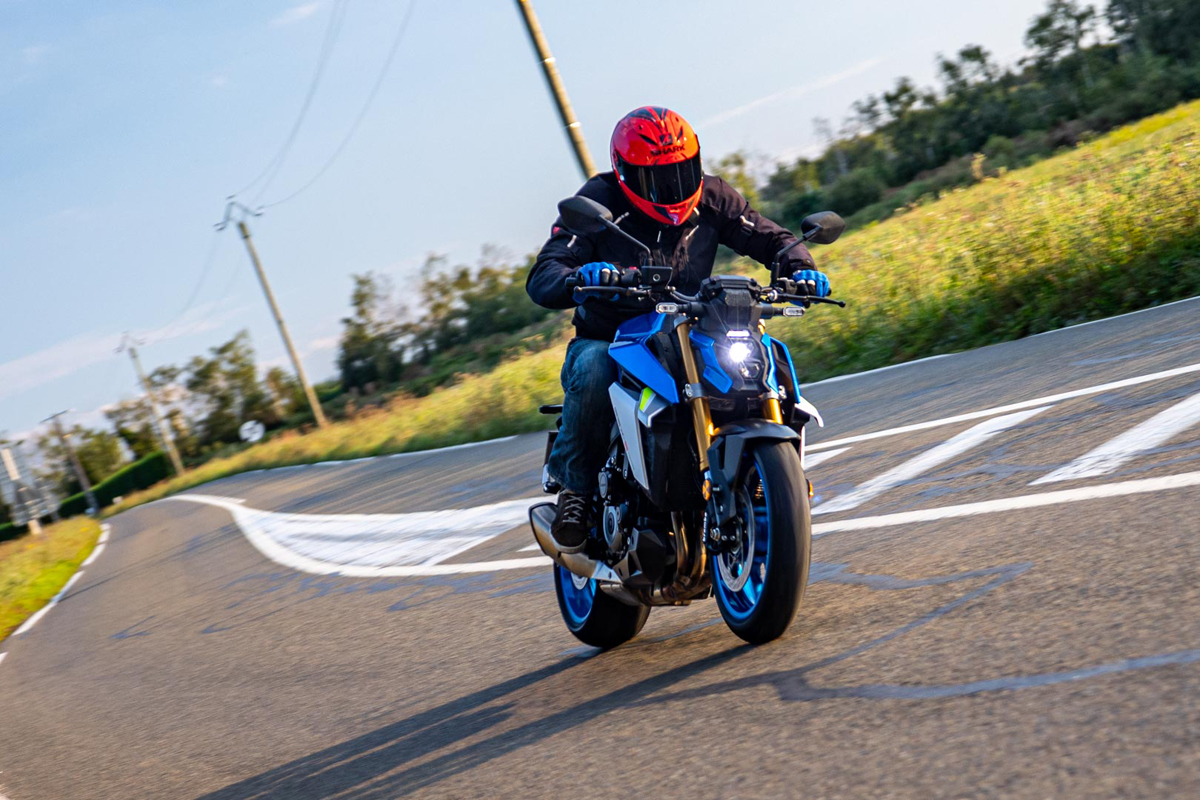
A GSX-R frame, a GSX-R engine—even when they’re old or detuned, they mean serious business. And so does Suzuki, with the brand new GSX-S1000: a 150 hp naked motorcycle that is not for the faint-hearted.
The GSX badge is over forty years old already, and can actually trace its lineage as far back as 1976. Before that, Suzuki was a two-stroke fanatic, with a decade of mighty two and three-cylinder smokers, and with the GT750 seen as the apex. However, pollution and emission regulations made Suzuki turn to four-stroke engines, which they did in 1976 with the GS450 twin cylinder and GS750 four-cylinder.
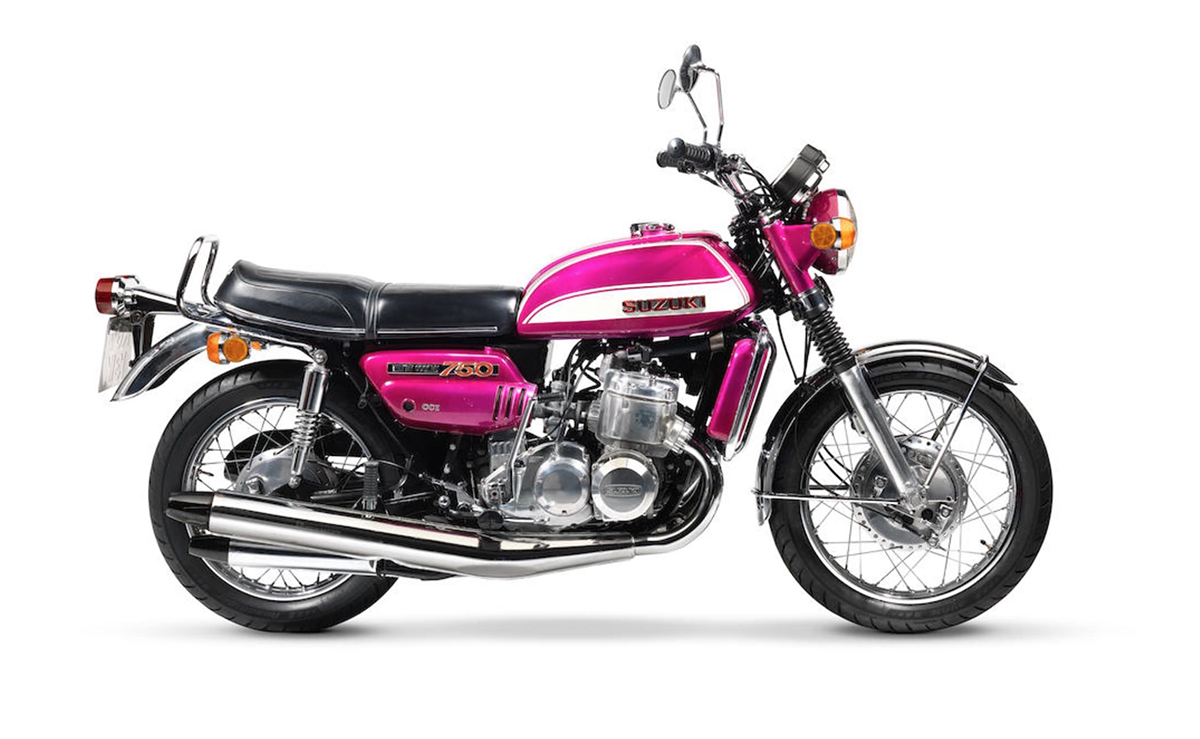
Those machines were good—very good, even. But they came after the competition: Honda had a four-stroke in the mid-sixties, as did Kawasaki with the 1966 W1. Even Yamaha started in 1970 with the XS650. Suzuki waited until 1976, but at least they made some great bikes. They also won some great championships, with Wes Cooley in the USA—which helped to revamp the brand.
In 1980, Suzuki switched to their 16-valve engine. In 1981, the controversial Katana, designed by the legendary Hans Muth, gave the brand a more aggressive image. And in 1985, the GSX-R750 brought the superbike into a new era.
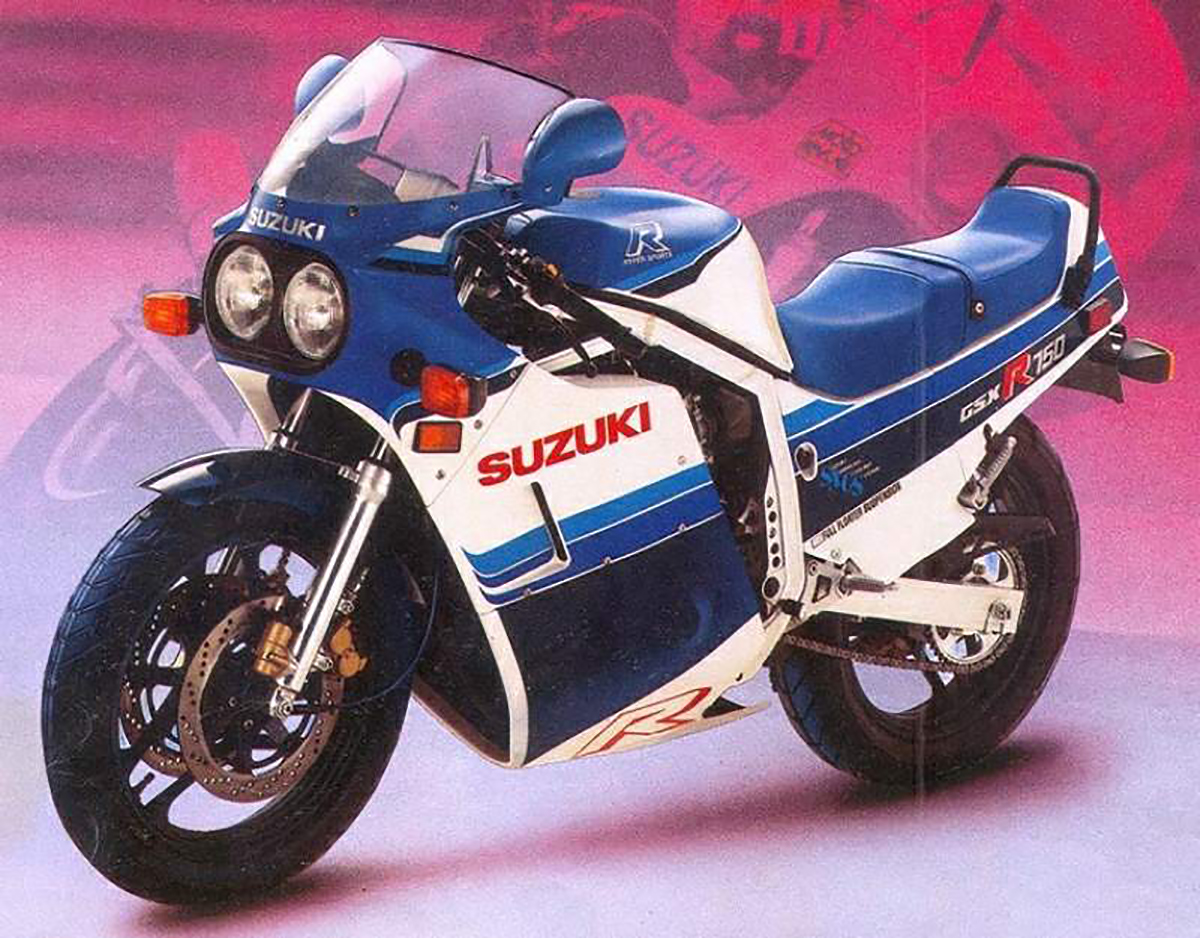
Since then, the ‘GSX’ name has set the standard. And the 2021 GSX-S1000 pays tribute to that.
GSX-R inside (nearly)
A naked bike with a powerful engine—that’s nothing new for Suzuki when you recall the good old GSX1100, or the more recent Bandit 1200. Both offered maximum power-for-bucks, not to mention reliability that was probably the best of the era.
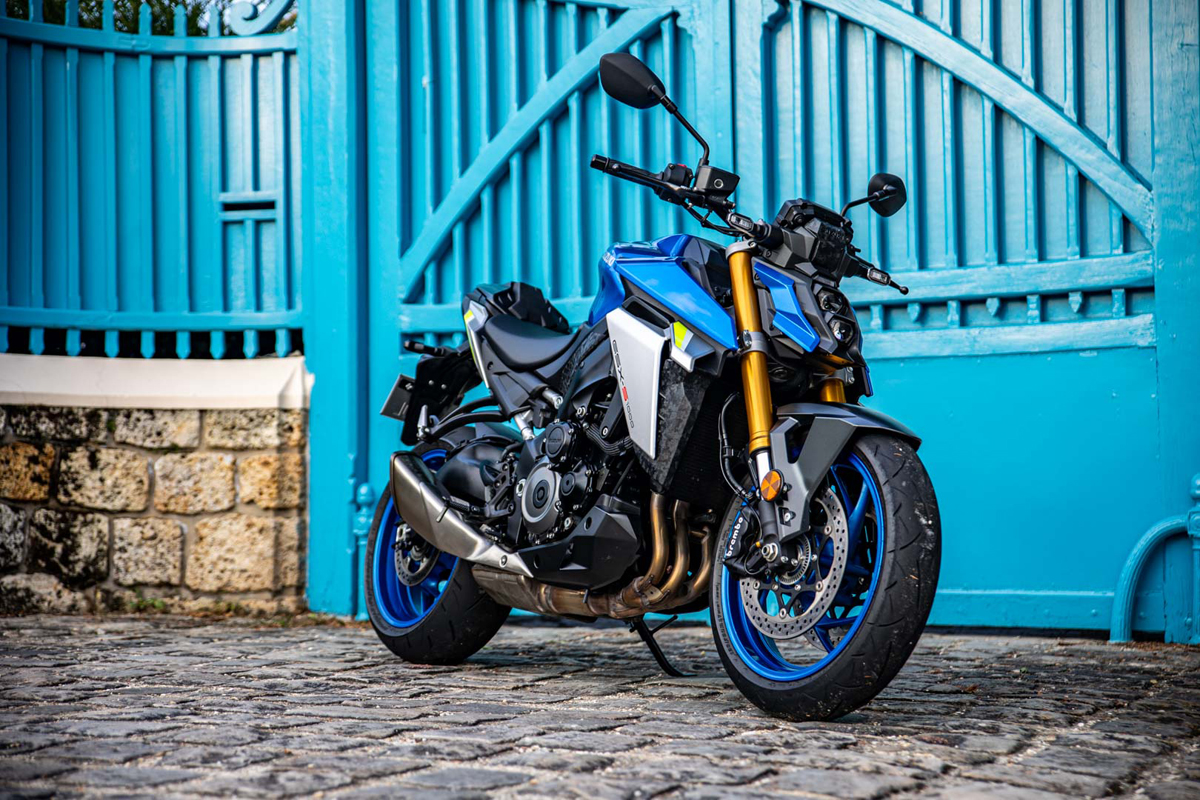
The GSX-S has been redesigned for 2021, and its new twin vertical headlights are a kind of audacious bet from the designers. A historical point of view recalls the Yamaha XJ750 Seca or the French Voxan VX-10—both of which were fugly, and massive commercial disasters. At least Suzuki’s lights are well integrated into the bike’s overall design, and give the machine some credit and character.
Compared to the previous version, the fuel tank is 2 litres bigger at 19L, and its silver side panels also add some attitude. So let’s put it frankly: the new Suzuki GSX-S1000 looks good.
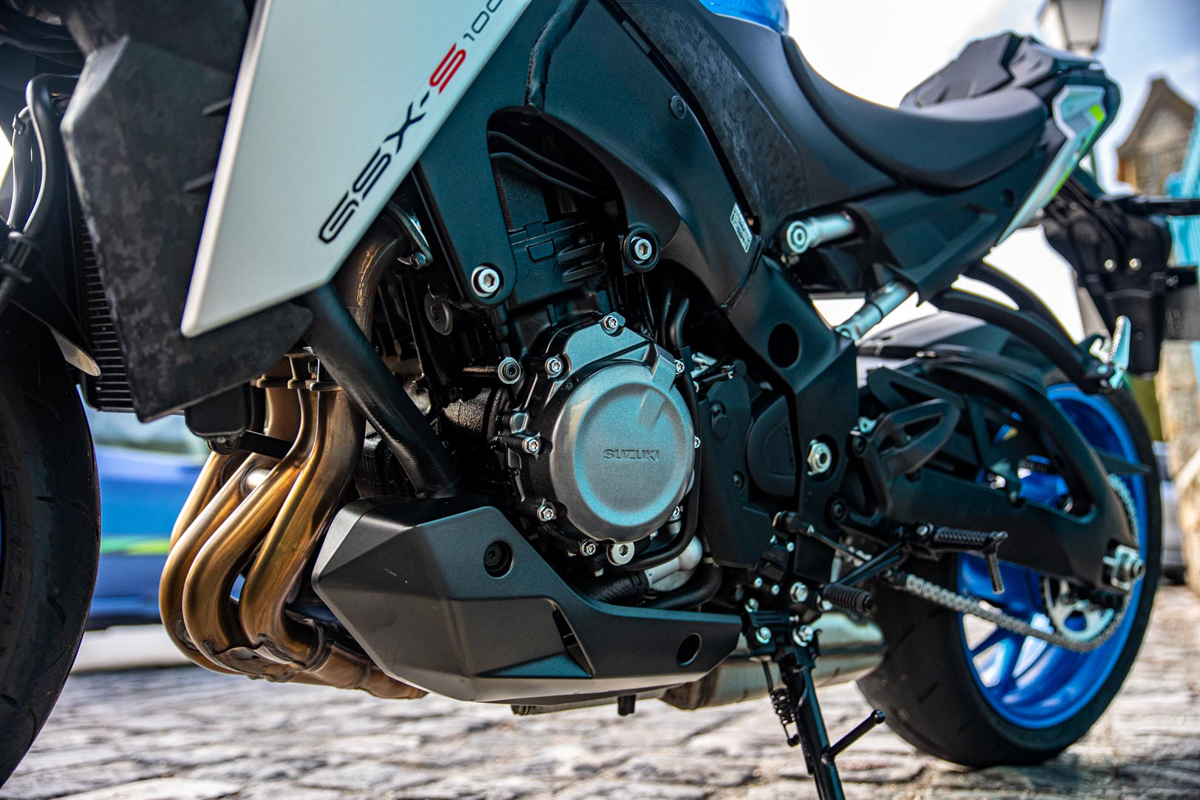
Its heart, however, comes from the 2005 GSX-R1000. That was a serious engine, but it’s now detuned to 152 hp and 106 Nm. Those are great figures for a naked bike, though—Italian stallions offer more, but at a much premium price. To get those figures, the 2005 superbike engine had to go through some changes, such as smaller throttle bodies and a new airbox. At least we all know that the engine is rock solid.
The GSX-S has no IMU (pity!), but the power is controlled by Suzuki’s proprietary SIRS (Suzuki Intelligent Ride System), which offers three engine maps, plus a quick-shifter and five levels of traction control. The Suzuki Easy Start system (one push on the start button) and low RPM assist are also provided.
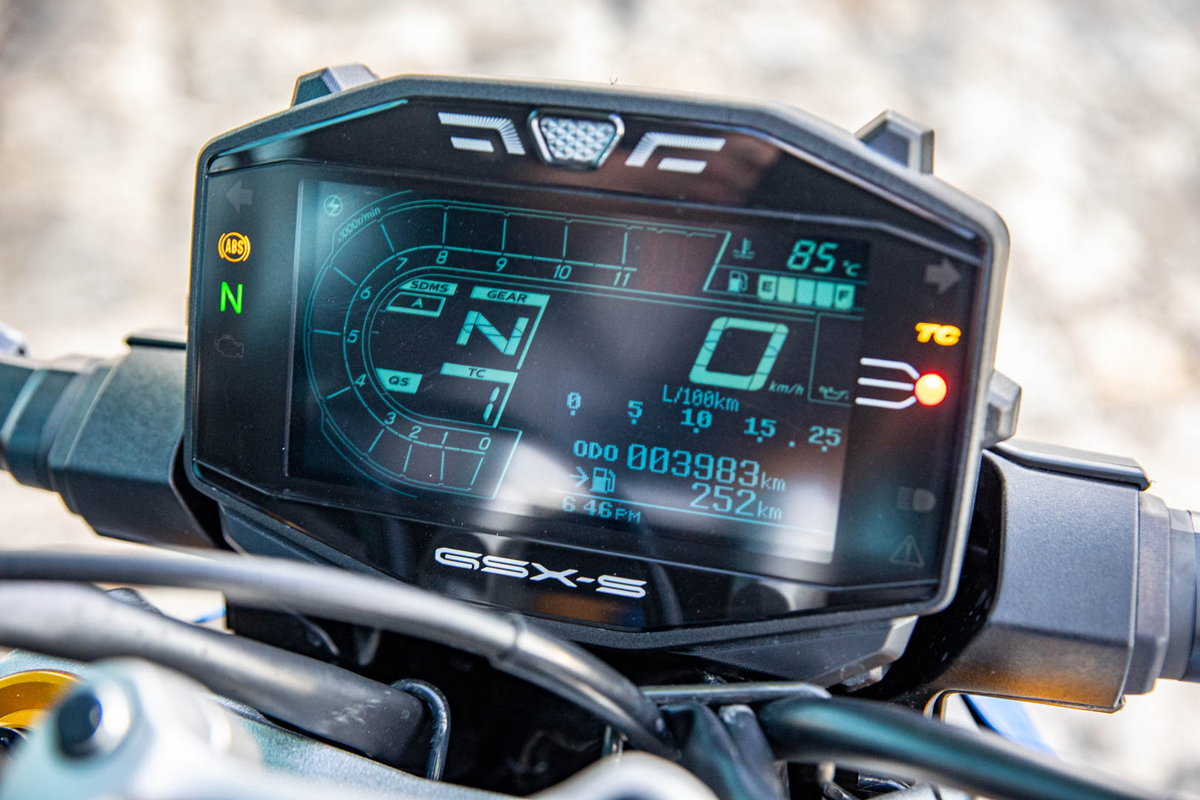
152 hp is a serious figure for a naked bike. But we can be reassured knowing that the swingarm comes from the 2014 GSX-R, with suspension from Kayaba. The 43 mm forks have 120 mm of travel, with a 130 mm travel rear shock that’s adjustable for preload and rebound. Brembo mono-bloc calipers handle stopping duties.
Owns the streets, is fun in corners
The Dunlop Roadsmart 2 tyres on the new GSX-S are much better than the D214s fitted on the previous version, and provide some serious confidence. Confidence is the keyword, since the new GSX-S offers a cooler riding position than before. The handlebars are 20 mm closer and 23 mm wider, and the front brake lever is adjustable; we like that.
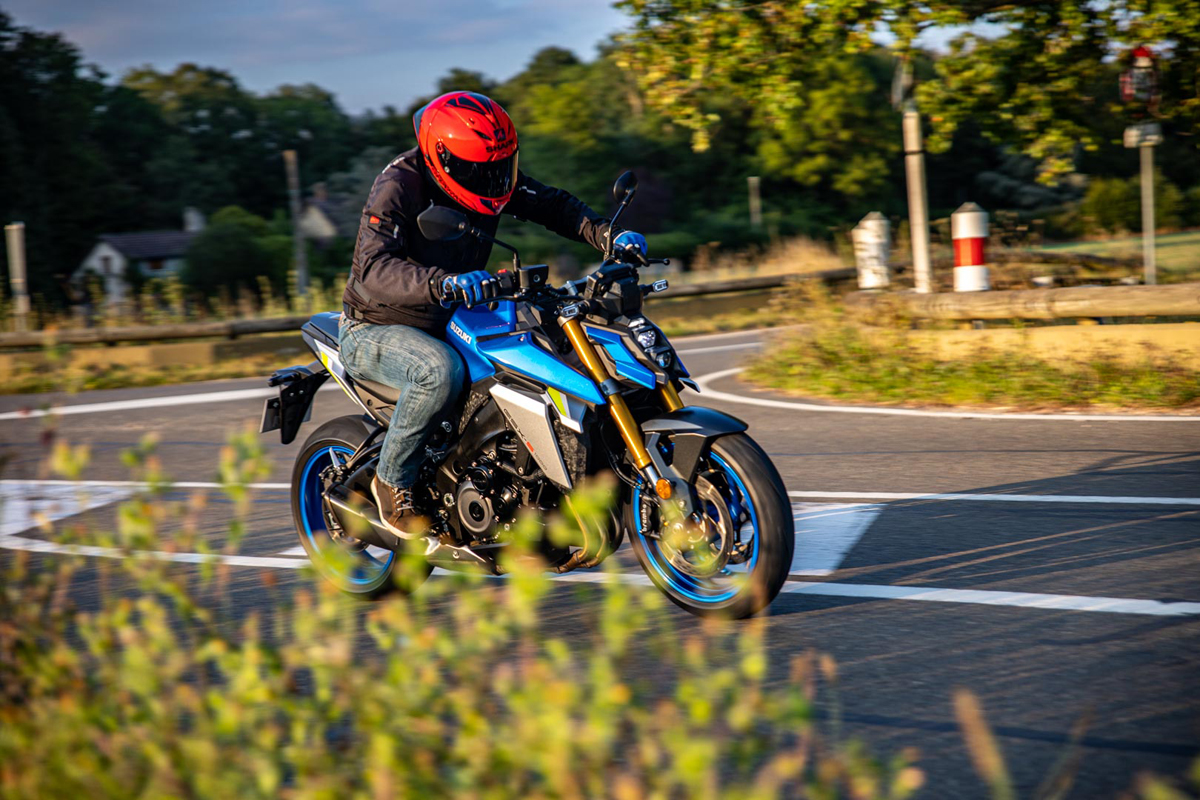
But look ahead, and there’s bad news. The LCD instrument panel is the same as on the V-Strom 1050 and the Katana, and honestly, it’s quite difficult to read. Suzuki needs to do better here.
And it’s especially a pity since the GSX-S 1000 is, actually, a very good bike. It’s not fancy like a three-star Michelin meal, but rather enjoyable, like a good old juicy Eisbein.
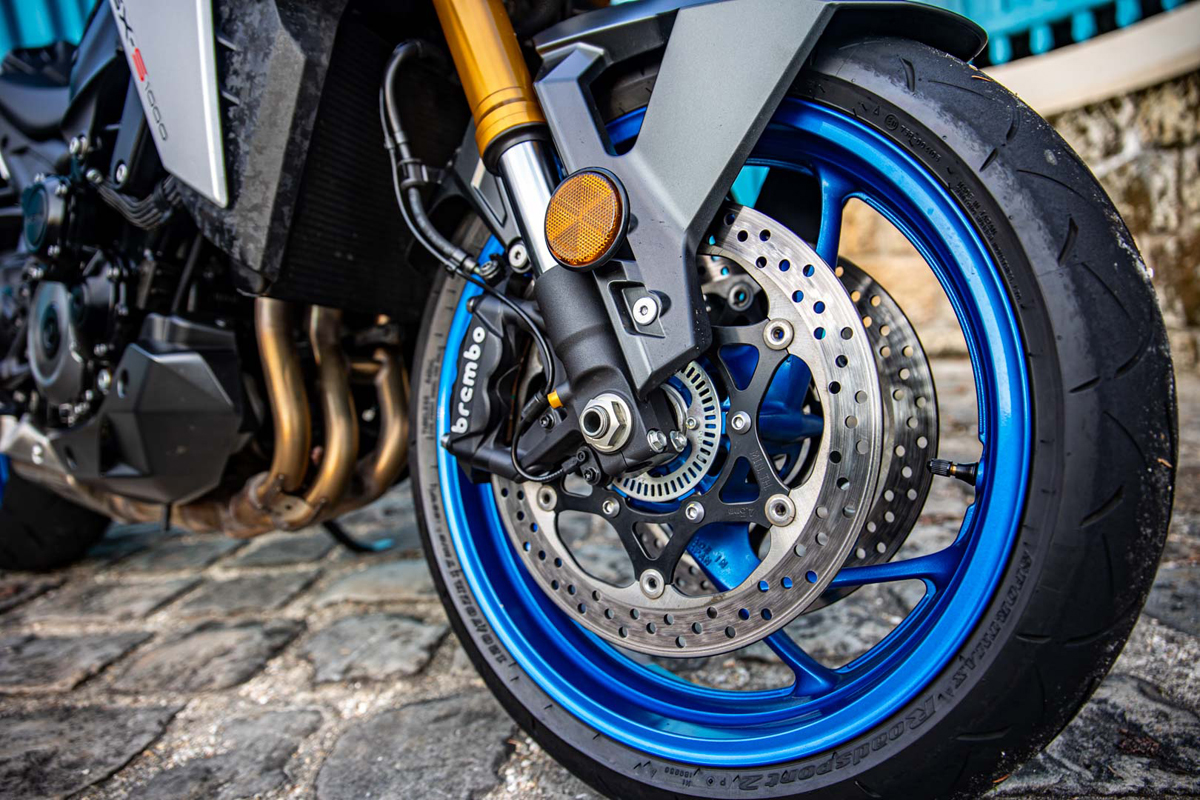
In town, the GSX-S1000 is rather smooth. The four-cylinder engine can handle 40 km/h in 6th gear if needed, but, the bike has some downsides. The clutch is not that smooth, and the throttle response is on the sporty side. Afterall, the GSX-S1000 is a sportbike!
Do you want proof? Third gear goes up to 175 km/h, and fifth gear to 245 km/h. I know this, because our lead riders on this test ride were Endurance World Champions Sylvain Guintoli and Gregg Black. On the open road, the GSX-R-derived four-cylinder delivers some serious oomph from 4,000 rpm, and starts stretching your arms from 6,000 rpm.
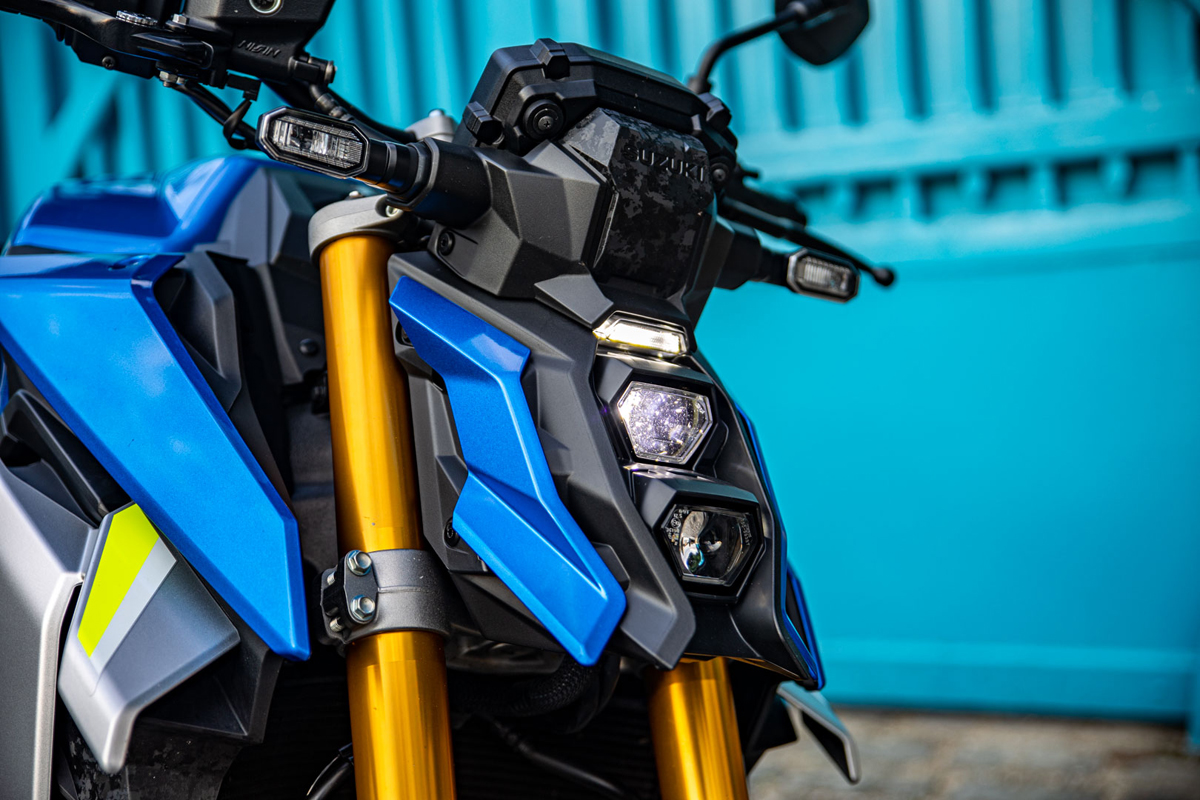
The GSX-S1000 is not a game-changer. But if you like good old Japanese motorcycles with some meat to them, it’s for you. Personally speaking, I love it.
To conclude
The brand new Suzuki GSX-S1000 is truly the kind of naked superbike that we used to love. We can’t call it a game-changer, but it’s a reminder of why we’ve always loved well-priced and powerful naked bikes from Japan.
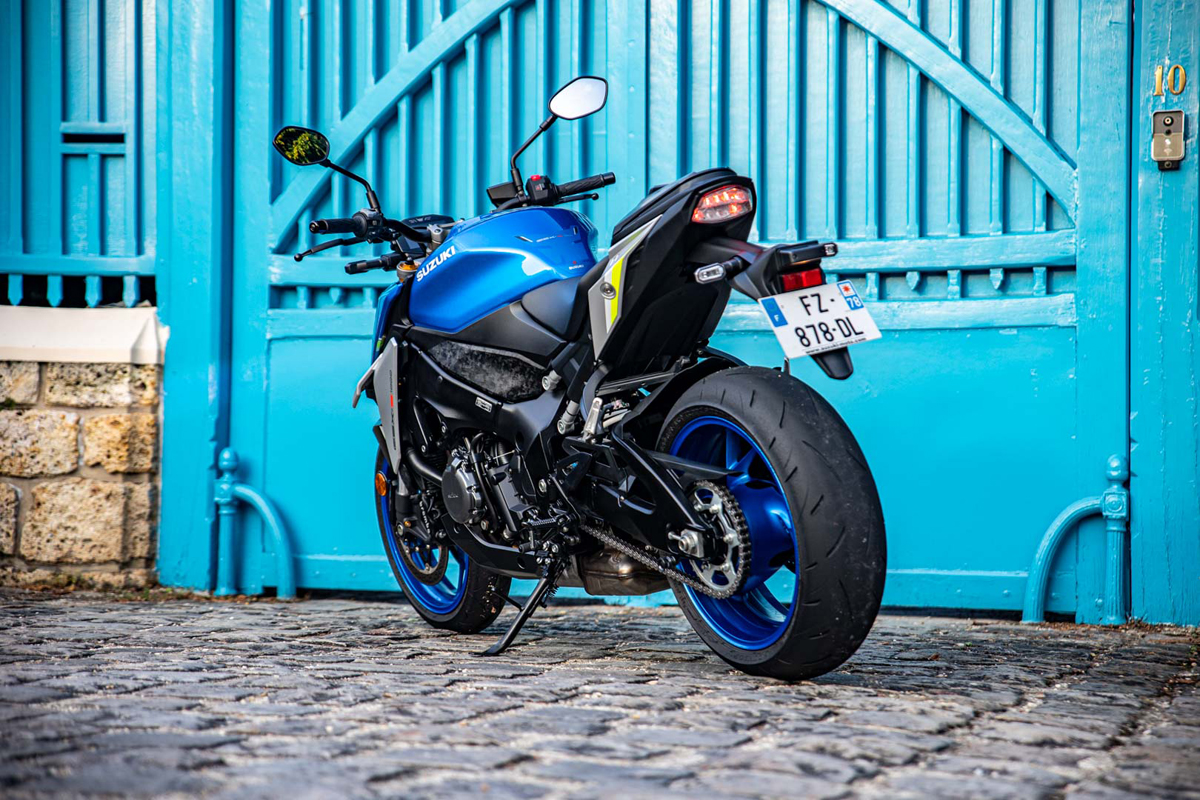
Could the 2022 Yamaha MT-10 and Ducati Streetfighter V2 be serious challengers? We’ll have to wait and see…




